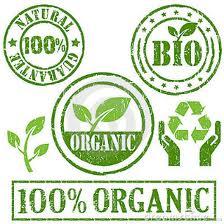What does organic really mean?

With rising concerns about pesticide usage and the effects on people and children the word organic is gaining popularity. But what does it really mean? Unfortunately it can mean a lot of things which makes it all the more confusing.
For instance, a recent high-profile study by researchers at Stanford University in California found that organic food was 30% less likely to contain trace levels of pesticides. All things considered this really isn’t saying much since it’s uncommon for any food, organic or conventional, to have unsafe levels.
Another common claim of organic is that it contains more vitamins and nutrients. This is quite the point of contention with some studies responding with a resounding yes and others flatly denying an increase in nutritional value. In another study done by Dr. Kirsten Brandt, an agricultural scientist, she states that organic produce tended to provide significantly more vitamin C and “secondary metabolites.” Metabolites include the antioxidant compounds – the polyphenols, the flavonoids, and all the other phytonutrients. Sounds pretty good to us.
So does organic taste better? The more intense flavors in organic fruits and vegetables probably stem from two factors: somewhat higher average levels of antioxidants, and somewhat lower crop yields. Yield levels, and the availability of nitrogen to crops, would alter both nutritional and taste quality.
One element of organic that gets the least attention is the actual farming process. Organic farming uses the natural methods of farming like crop rotation, green manure, compost, biological pest control, mechanical cultivation and other natural methods to maintain the fertility and productivity of the soil. One of the delightful by-products of this sort of farming is a positive result on the soil. Less chemicals in the ground means better quality soil and good soil, we know is the foundation to good growth. Let’s not forget this also means less run off into streams and the water table, which is a positive for the environment and in turn, everyone.
The best way to ensure what you are eating is 100% organic is to grow it yourself. Back yard gardening has enjoyed a huge resurgence in recent years for this reason. Raised garden beds, container gardens and vertical gardening allow people with small spaces to yield substantial crops. So get to it! We can help you with the whole set up, right down to raised garden bed kits and the fruit or veggies you want to grow.

